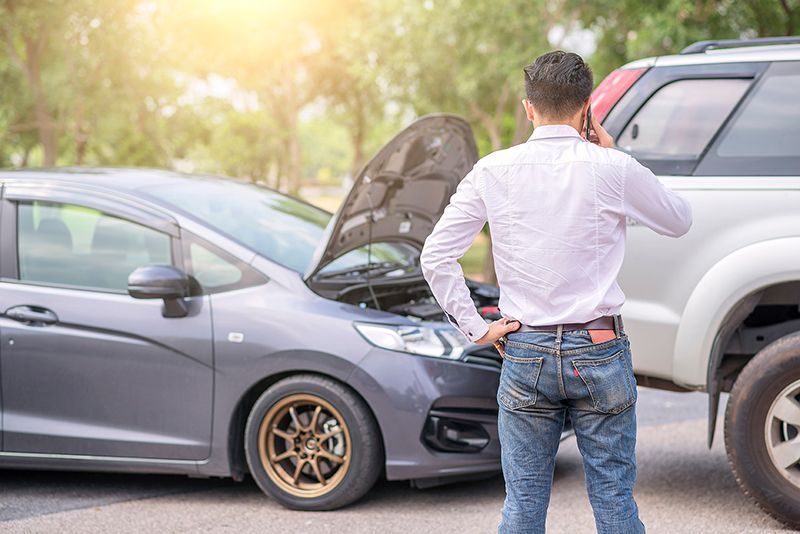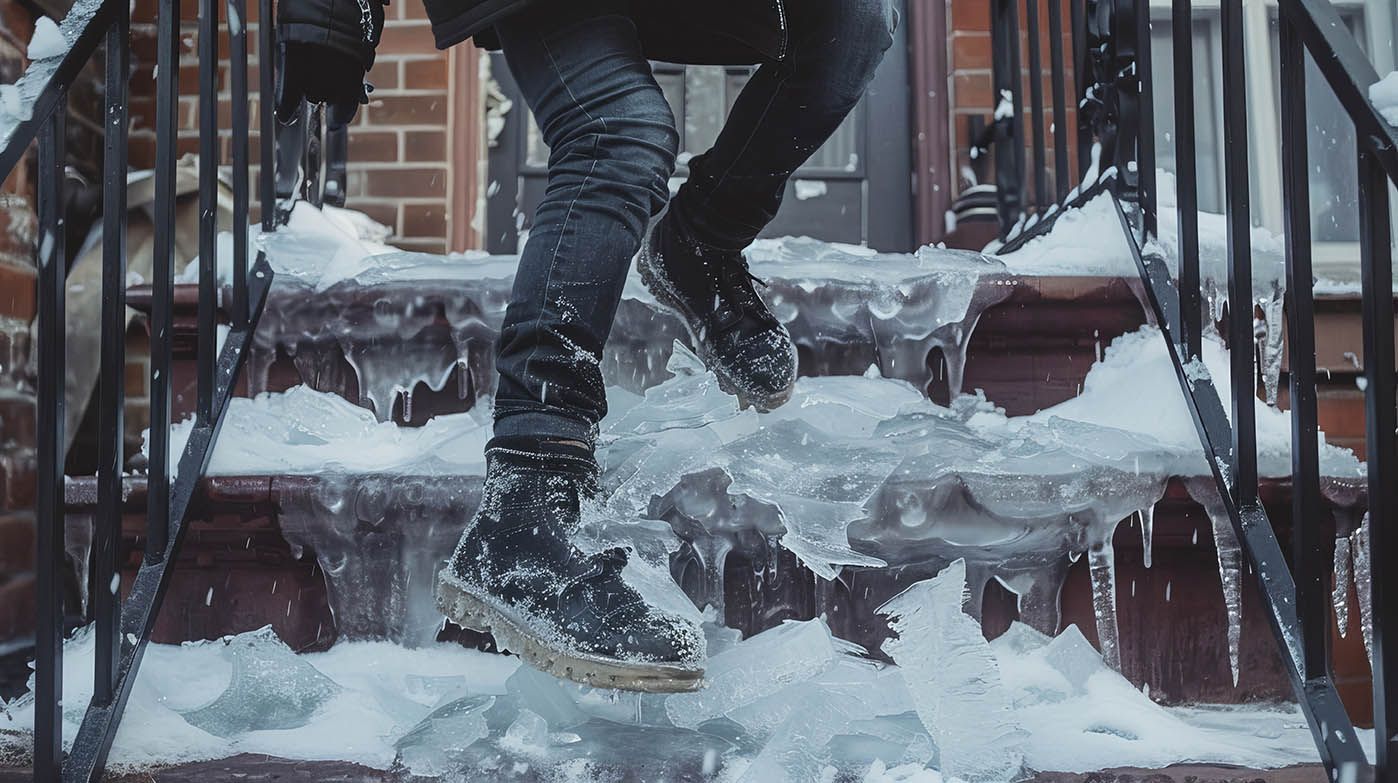BLOG
Common Causes of Auto Accidents in Iowa and Nebraska—and Who’s Liable

Car accidents are unfortunately common across Iowa and Nebraska, from bustling cities like Omaha and Sioux City to quiet rural highways. While every crash is different, most accidents share a few root causes—and identifying the cause is key to determining who is legally responsible.
If you or a loved one has been injured in a car accident, understanding liability is crucial. At Fitch & Stahle Law Firm, we help victims across Iowa and Nebraska pursue compensation for injuries caused by someone else’s negligence. In this blog, we break down the most common causes of crashes in the region and explain how liability is determined under state law.
1. Distracted Driving
Distracted driving continues to be one of the leading causes of car accidents across the country—and Iowa and Nebraska are no exception. Whether it’s texting, checking GPS, eating, or adjusting the radio, any activity that diverts attention from the road increases the risk of a crash.
- Iowa law prohibits texting and driving for all drivers and bans handheld phone use for novice drivers.
- Nebraska law also bans texting while driving and enforces penalties for distracted driving that causes accidents.
If a driver was distracted and caused the crash, they may be considered negligent—and thus liable—for any resulting injuries and damages.
2. Speeding and Reckless Driving
Speeding is another major factor in serious and fatal accidents throughout the Midwest. On highways like I-80 in Nebraska or I-29 in Iowa, high-speed collisions often result in devastating injuries.
Reckless driving—such as tailgating, weaving through traffic, or ignoring traffic signals—further increases the risk of multi-vehicle crashes.
How liability is determined:
Police reports, witness statements, traffic camera footage, and skid marks can all help establish that a driver was operating their vehicle recklessly and is at fault.
3. Driving Under the Influence (DUI)
Operating a vehicle under the influence of alcohol or drugs is both illegal and highly dangerous. DUI-related crashes often result in severe injuries or fatalities due to impaired judgment and delayed reaction times.
In both Iowa and Nebraska, the legal blood alcohol content (BAC) limit is 0.08% for drivers over 21. A driver under the influence can face criminal charges and civil liability if they cause an accident.
In some cases, if a bar or restaurant overserved alcohol to a visibly intoxicated person, dram shop laws may allow you to file a claim against the establishment as well.
4. Poor Weather Conditions
Icy roads, heavy snow, fog, and strong winds are common in both Iowa and Nebraska—especially during the winter months. While no one can control the weather, drivers are still expected to adjust their behavior accordingly. Driving too fast for conditions or failing to use headlights in poor visibility can be considered negligent.
If someone crashes into you because they didn’t slow down during a snowstorm, they can still be held responsible—even if the weather contributed to the crash.
5. Running Red Lights and Stop Signs
Intersections are hotspots for accidents, especially when drivers ignore traffic control devices. Failing to yield, blowing through red lights, or making illegal left turns can all cause serious side-impact or head-on collisions.
Liability Tip:
These types of violations are often clearly documented in police reports or video footage, making it easier to prove fault.
6. Fatigued Driving
Drowsy driving can be just as dangerous as drunk driving. Long-haul truck drivers, night shift workers, and those with sleep disorders may fall asleep at the wheel or struggle with focus and reaction time.
If a commercial driver causes an accident due to fatigue, the trucking company may also share liability under federal safety regulations—especially if they violated hours-of-service rules.
7. Vehicle Defects or Poor Maintenance
Sometimes, an accident isn’t caused by a driver—but by a mechanical failure. Faulty brakes, defective tires, or malfunctioning steering components can all lead to dangerous crashes.
In these cases, liability could fall on:
- The vehicle manufacturer
- The mechanic who last serviced the vehicle
- A parts supplier
- A rental car agency
This is why it’s so important to have an attorney investigate all angles of the crash—not just the actions of other drivers.
How Liability Works in Iowa and Nebraska
Both Iowa and Nebraska follow comparative fault systems when determining accident liability:
- Iowa uses modified comparative fault: You can recover damages if you are less than 51% at fault. Your compensation will be reduced by your percentage of fault.
- Nebraska uses pure comparative fault: You can still recover damages even if you’re 99% at fault, but your compensation will be reduced accordingly.
Example:
If you’re awarded $100,000 but found to be 30% at fault, you’ll receive $70,000.
This makes it critical to have legal representation that can limit your share of the blame and maximize your potential recovery.
Proving Fault After an Accident
To build a strong case, your attorney may use:
- Police reports and crash scene photos
- Eyewitness statements
- Surveillance or dashcam video
- Cell phone records
- Vehicle black box data
- Accident reconstruction experts
The more evidence you have, the stronger your case—and the better chance you have of recovering fair compensation.
Why You Need an Attorney After an Accident
Even if liability seems clear, insurance companies may still try to minimize your payout or shift blame. At Fitch & Stahle Law Firm, we handle all aspects of your claim so you can focus on healing. We’ll investigate the cause of your crash, gather evidence, and deal with insurers on your behalf.
We represent injured clients throughout Iowa and Nebraska, and we never charge a fee unless we win your case.
Final Thoughts: Don’t Guess Who’s at Fault—Let Us Help
If you were injured in a car accident, don’t assume you know who’s to blame—or what your case is worth. Many victims overlook important causes or accept partial fault without realizing it. Let Fitch & Stahle guide you through the legal process and fight for the compensation you deserve.


